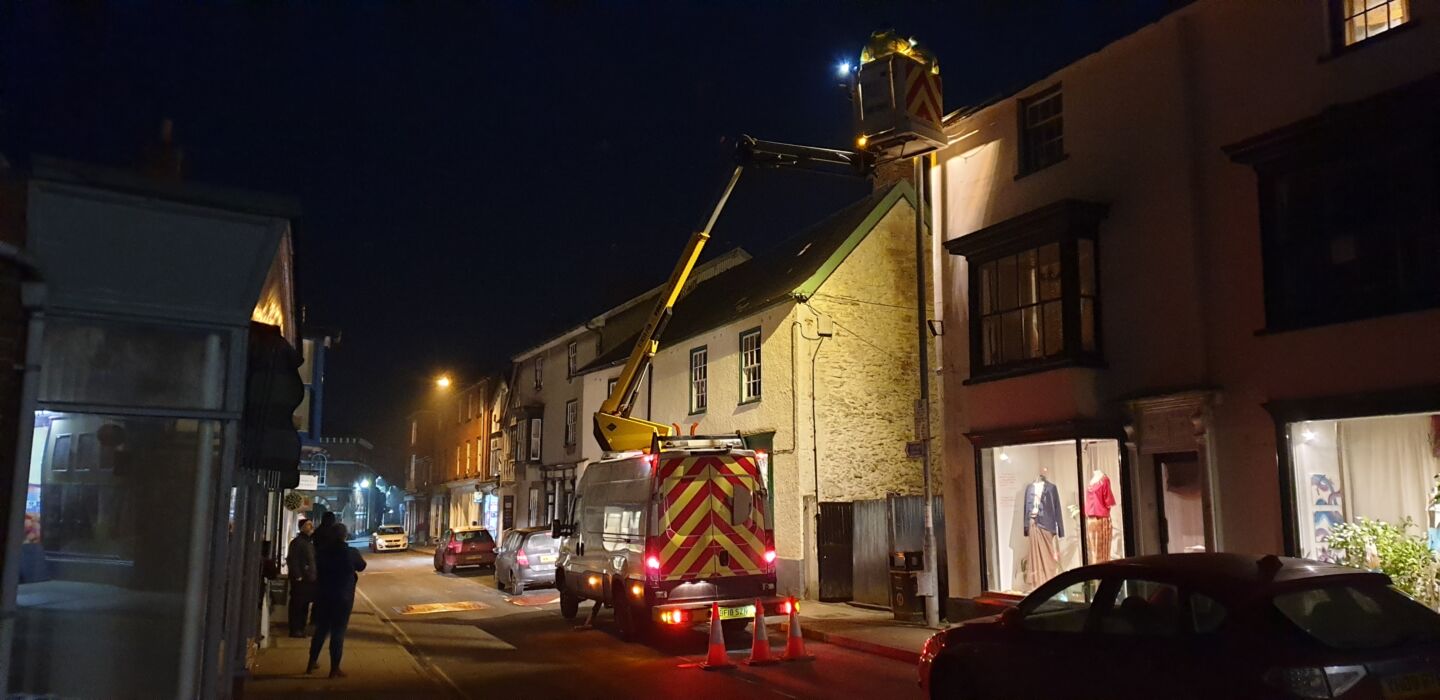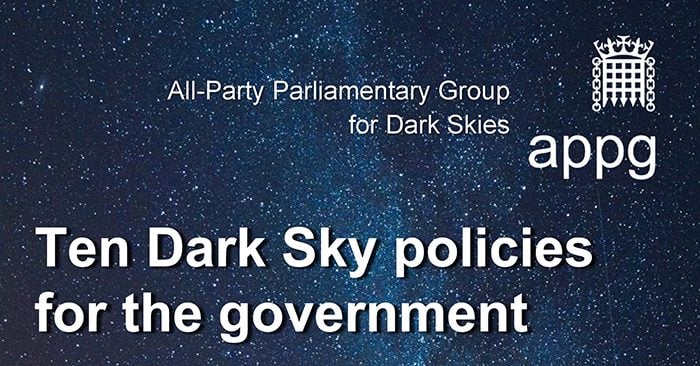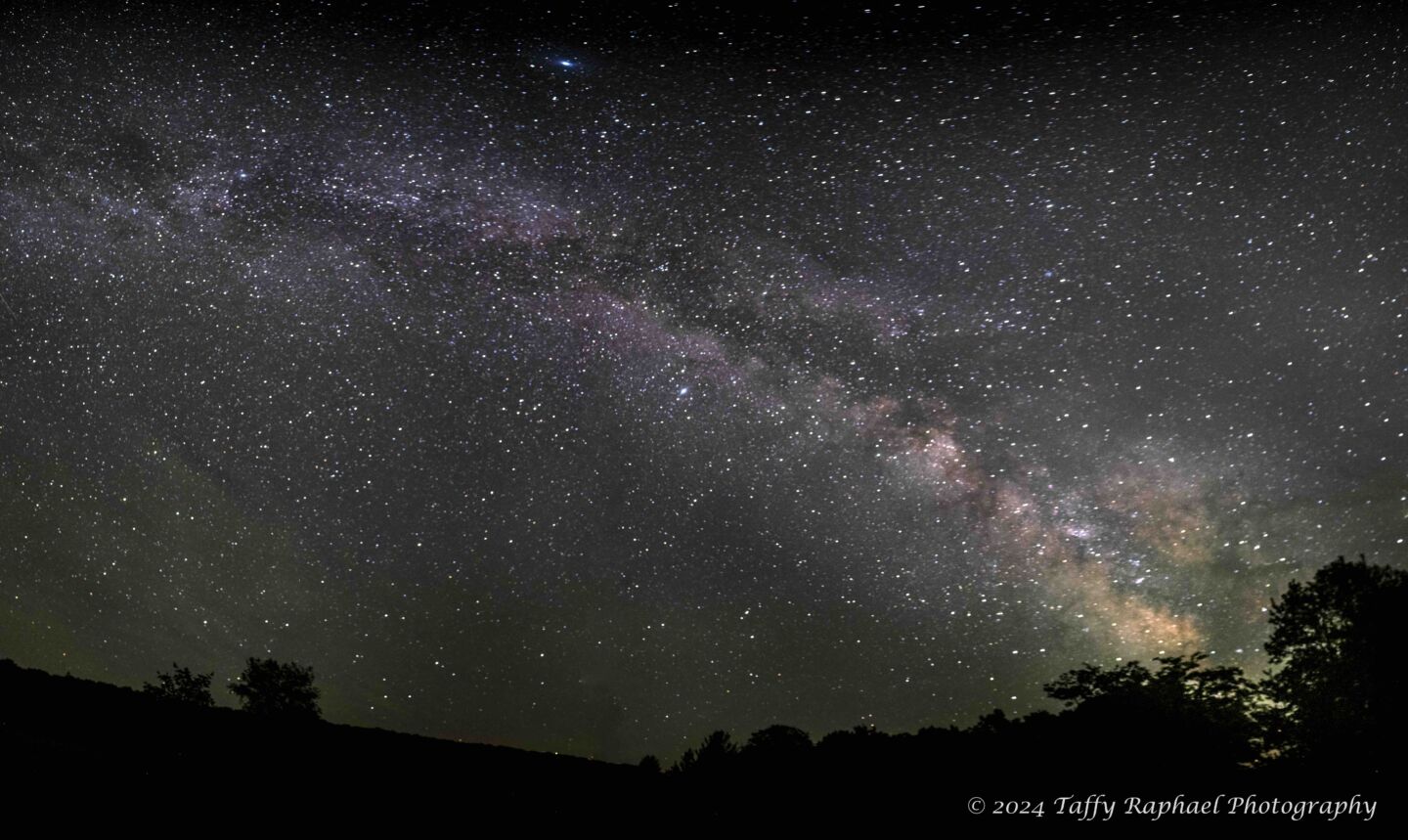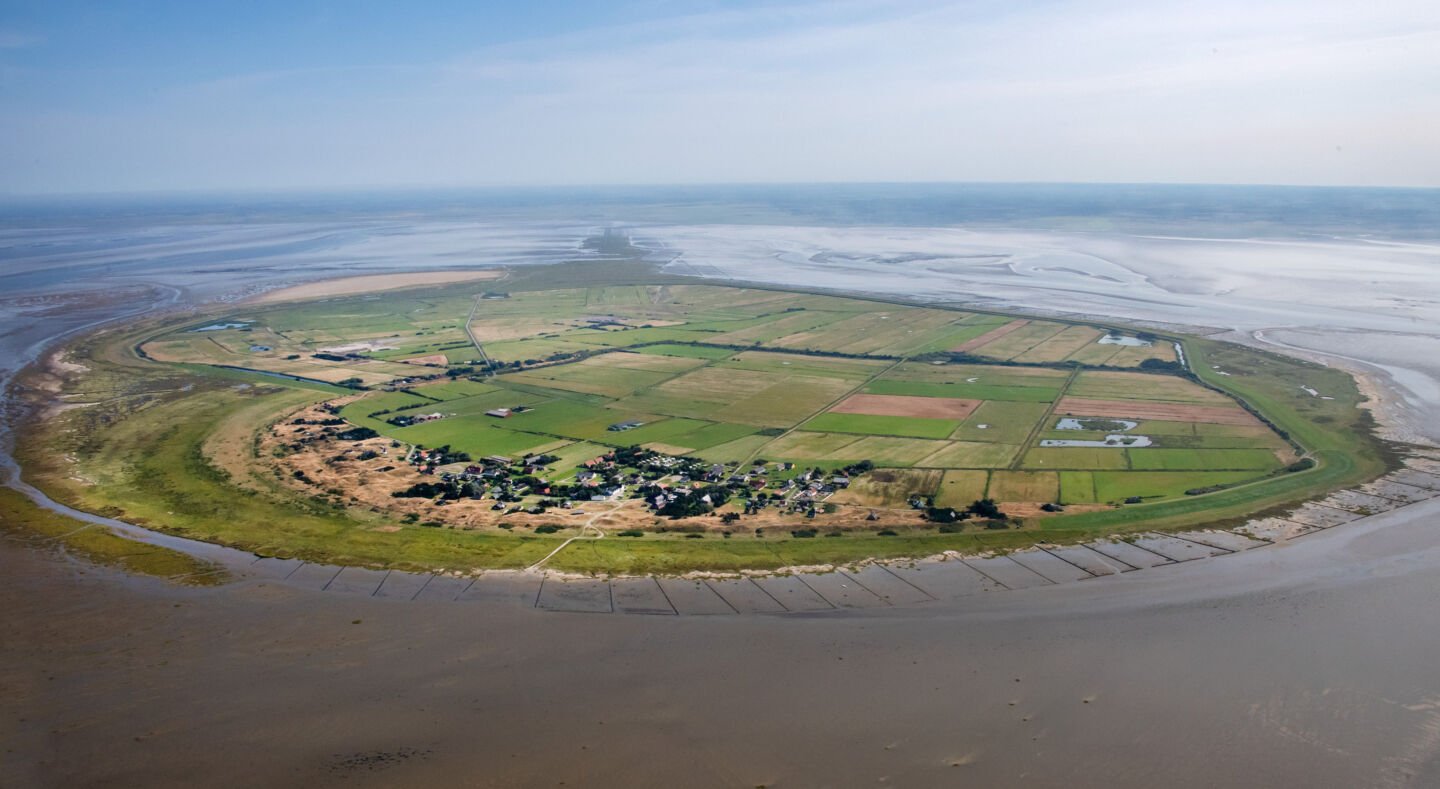
United Kingdom Parliamentary Group Issues First Dark-Sky Policy Plan

The All-Party Parliamentary Group (APPG) for Dark Skies today released the United Kingdom’s first comprehensive plan for combating light pollution. The plan consists of ten policy recommendations to the UK government that aim to modernize the legal framework governing the use of outdoor lighting, establish new national lighting standards, and incentivize dark sky preservation across Great Britain and Northern Ireland. The APPG recruited IDA’s participation from early in the process, helping to shape today’s result.
“The UK stands poised to take an important step in turning around the ongoing degradation of the country’s night skies by enacting policies that call for quality outdoor lighting that improves nighttime visibility, reduces skyglow, and enhances conditions for nocturnal wildlife,” said IDA Executive Director Ruskin Hartley.
The APPG is the first dark-sky parliamentary group in British history, consisting of parliamentarians of all parties from both the House of Commons and House of Lords. It was formed in early 2020 to promote the adoption of dark sky friendly lighting and planning policies in the UK and to help protect current and future IDA International Dark Sky Places across the country including the two newly designated International Dark Sky Reserves: Yorkshire Dales and North York Moors National Parks.
The issue became more urgent after a 2016 study found that nearly 100% of the British population lives under light-polluted skies. The rapid pace at which the night was being lost in the UK prompted some parliamentarians to take action.
Andrew Griffith, Member of Parliament for Arundel and South Downs, explained the need for the APPG and how it led to today’s report. “I founded the APPG for Dark Skies shortly after being elected to Parliament so that future generations may still be able to see the stars and the Milky Way – something that is already impossible in many parts of the UK,” Griffith said.
In formulating the new policy plan, the APPG sought input from various stakeholders and looked at models like French national legislation that came into force in 2018. The proposed policies build on the strength of the UK’s National Planning Policy Framework and Environmental Protection Act 1990 to fully implement light pollution controls in UK law. It would also create a new cross-departmental Minister for Dark Skies with “a clear remit for the control and prevention of light pollution” across the country.
The UK’s foremost voice on astronomy matters weighed in on today’s announcement in favor of the proposal. “The government should implement modest changes in the planning and regulatory system that could stem and indeed reverse the current trend,” Sir Martin Rees, the Astronomer Royal, said in a statement. “Such measures would certainly earn the gratitude of the next generation and would surely command broad support today.”
The next steps for the APPG include raising support for the policy proposals among Members of Parliament and holding hearings on the subject. Stakeholders consulted during the policy formulation phase will be enlisted to help as the proposal moves toward full consideration by Parliament and possible enactment.
IDA will remain engaged with the APPG throughout the process. “This policy plan will provide a basis for the focus of our future campaigns in Parliament and reflects our role as a forum for parliamentarians and organizations such as the IDA to work together,” Griffith said.
Hartley agrees. “We are encouraged by today’s announcement and look forward to helping with its implementation.”



















